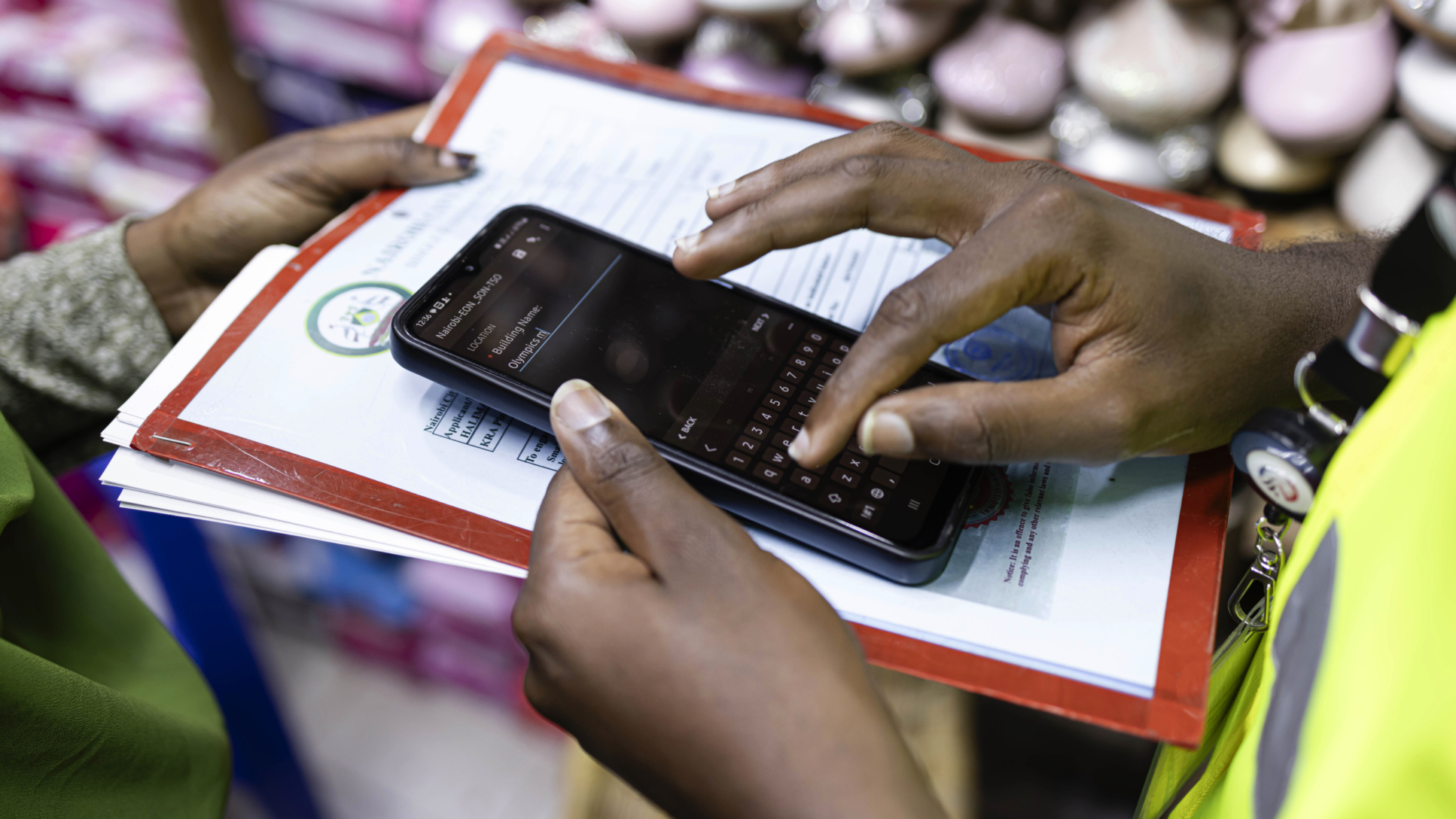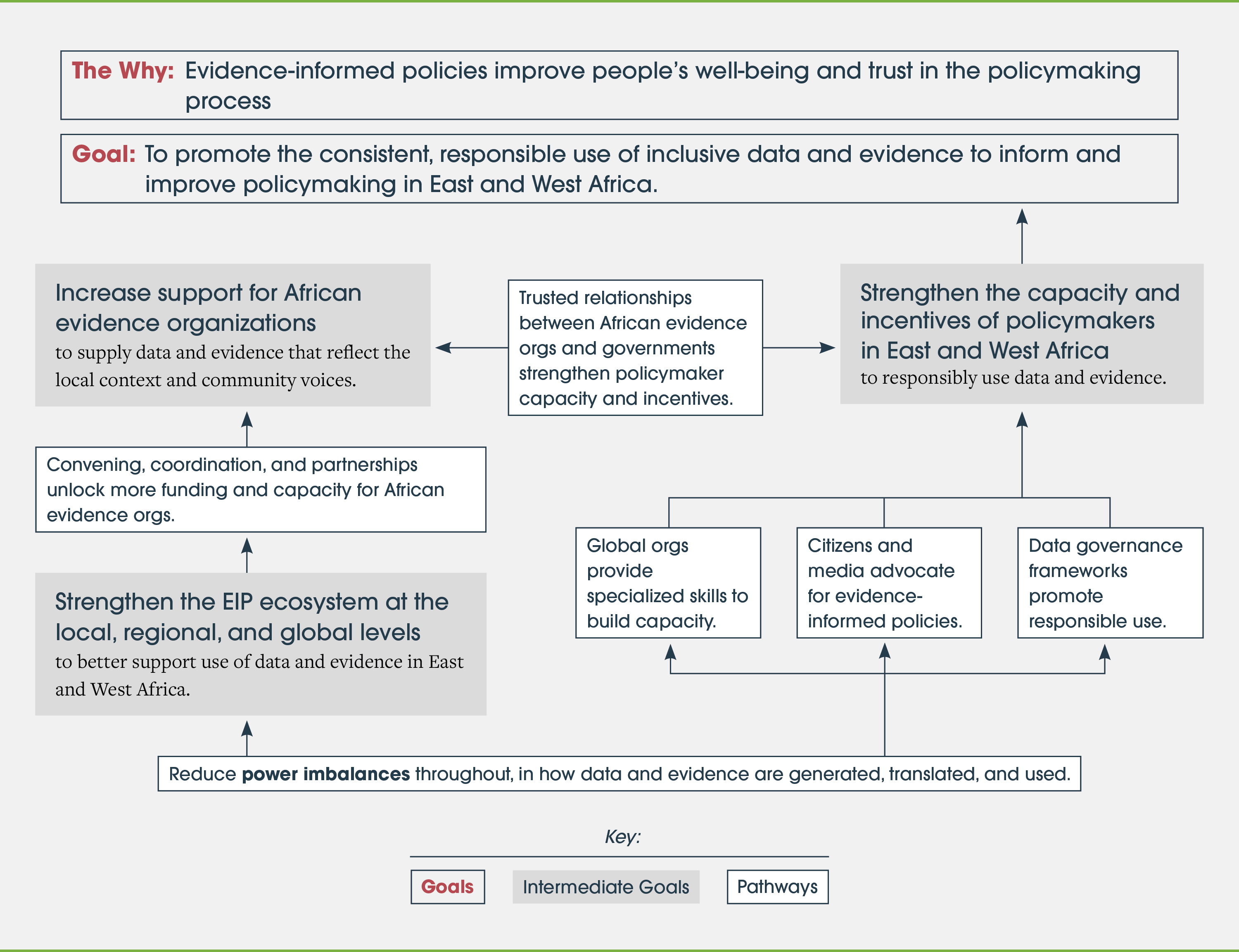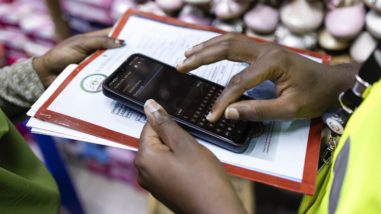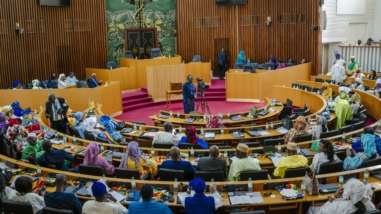Announcing our new Evidence-Informed Policymaking strategy

Cliquez ici pour lire en français
The Hewlett Foundation’s Gender Equity and Governance (GEG) program supports a diverse set of creative thinkers and problem solvers who are working to build an inclusive society where everyone, especially women and girls, can thrive. Since 2015, the GEG program has been dedicated to promoting Evidence-Informed Policymaking (EIP) in East and West Africa. Our goal has been to encourage policymakers across the region to incorporate evidence into their decision making, enhancing people’s well-being through more rigorous and objective policymaking.
The foundation has invested over $120 million in EIP in the past five years, collaborating with more than 55 organizations. These efforts have focused on driving tangible policy and program changes, instigating systemic shifts in decision-making processes, and nurturing a robust EIP ecosystem.
In September 2022, we launched a strategy refresh process — evaluating the outcomes of the past five years of grantmaking and conducting an external scan of the evolving landscape. The culmination of this process is the unveiling of our refreshed strategy, shaped by the lessons we learned and insights that were gained from the evaluation and scan.
What we have learned: EIP is challenging, but opportunities for impact remain
The good news is that policymaker access, capacity, and motivation to use evidence has improved globally, and the African continent is no exception. If anything, the COVID-19 pandemic highlighted the centrality and criticality of data and evidence in policymaking. However, this progress has been exceedingly uneven and isolated in Africa — wide gaps in access, technical capacity, and use remain both within and across countries due to the sheer size of the problem, which is further complicated by both political incentives and rapid innovation (such as artificial intelligence).
Despite this difficult backdrop, however, there is clearly opportunity. The EIP ecosystem in Africa is much stronger than it was in 2015: The influence of African researchers and advocates has grown markedly, the number and quality of African evidence producers and intermediaries has increased, and more and more African policymakers are expressing their desire to improve their use of data and evidence. In addition, global movements on responsible data and evidence use, the continued salience of data for achieving the UN’s Sustainable Development Goals (SDGs) and its related Leave No One Behind principle, and pressures on power shifting and localization are all major themes that are helping sharpen and fortify progress in the EIP space — and especially in Africa.
Proximity and power: Foundations of the refreshed EIP strategy
Given this context, the updated strategy is more of a “refresh” than an entirely new approach. Rather than making wholesale shifts and pivots, the changes we have made aim to (1) mirror the current reality of a world vastly different from 2015 — one entangled in a multitude of crises, with strained trust between people and policymakers; and (2) capitalize on the thriving Evidence-Informed Policymaking ecosystem present in Africa.
To that end, the EIP strategy’s refreshed goal is as follows:
Evidence-Informed Policymaking strategy's goal
To promote the consistent, responsible use of inclusive data and evidence to inform and improve policymaking in East and West Africa.
While our overarching goal remains roughly the same as the previous goal — to see policymakers in East and West Africa consistently rely on data and evidence to inform their policy decisions — there is a nuanced shift. The new goal is more explicit about the need for data and evidence to be inclusive and contextually relevant, more proximate. In addition, as the availability and use of data and evidence grows, responsible use becomes increasingly critical. And finally, while the previous goal focused on systematic use of evidence, we believe the idea of consistent use better reflects the reality of EIP, and through which our grantees can drive change.
To that end, this refreshed goal rests on a new theory of change:

By working to strengthen the capacity of more proximate African organizations in the data and evidence space, while, in parallel, enhancing the capacity and incentives of African policymakers to demand and use this data and evidence, a virtuous spiral of stronger, trust-based relationships should grow between these two sides. In turn, this will reinforce the growing and more robust EIP ecosystem both in Africa and globally.
In addition, underlying this refreshed goal and theory of change is a frank recognition that data and evidence (like all knowledge) are forms of power. Yet power in the current evidence ecosystem is rife with imbalances: between Northern evidence organizations and their African peers, between national and local governments, between marginalized communities and elites, and between individuals and the state. As a result, we are committed to working with grantees to identify and reduce unjust or inappropriate power imbalances in the data and evidence field, so that policymakers, institutions, and communities at all levels have more equitable access to evidence and can engage in a fairer, more inclusive policymaking process.
Bolstering, balancing, and breaking silos: Unpacking how we will achieve the goal
As illustrated in the theory of change graphic, we will pursue our goal through three separate, yet interconnected and mutually strengthening, efforts. Each of these efforts acts as an intermediate goal, providing a means for us to assess the overall progress we are making.
- Increase support for African evidence organizations. Strengthening African data and evidence organizations, particularly those that have strong relationships with governments, is at the core of the refreshed strategy. To capitalize on the growing pool of evidence organizations in the region, we will seek out new African grantees, emphasizing smaller, lesser-known organizations and/or those operating at the subnational level. This is to ensure that EIP grantmaking does not exacerbate existing power imbalances between well-known global, national, or regional organizations and their equally effective, but less-recognized, local counterparts. Striking a balance in grant distribution between historical institutions outside Africa and those more in proximity will be crucial. Simultaneously, we will support African-led partnerships with evidence organizations from outside the region, facilitating knowledge exchanges and the dissemination of best practices.
- Strengthen the capacity and incentives of policymakers in East and West Africa to responsibly use data and evidence. A necessary complement to strengthening African evidence institutions is building both the capacity and the incentives of policymakers to use what those organizations produce. This means making investments that strengthen the knowledge, skills, systems, and resources to leverage evidence for policymaking. It also means supporting new forms of innovative data and evidence (such as citizen-generated data), and not promoting specific types of data and evidence (for example, impact evaluations) above others. Both global and more proximate EIP actors will be key to this work. Both can provide specialized services in response to the needs and priorities of governments across Africa; finding the right balance between the two, however, will be critical.
Changing incentives is complex, but also important. We will support grantees that are working to reshape incentives through a wide range of approaches. These might include (1) lowering barriers to evidence use by giving policymakers facilitated access to user-friendly tools that can be used without needing advanced technical skills; (2) establishing mechanisms for advocacy, transparency, and public accountability around evidence and data use in policymaking; and (3) designing incentive structures that reward policymakers for using evidence in their decisions, and doing so responsibly. The cluster of grantmaking in African data governance will be especially important to this aspect of the strategy, and once again, both global and more proximate EIP actors will be key to this work. Finding the right balance between the two will be important, especially given the wide array of power dynamics at play. - Strengthen the EIP ecosystem at the local, regional, and global levels to better support use of data and evidence in East and West Africa. The EIP strategy supported three distinct portfolios within the foundation that were complementary, but often operated independently: impact evaluations, institutionalizing evidence use, and data revolution and data governance. Grantees consistently expressed desire for more opportunities to collaborate with and learn from others working across these disparate data and evidence practice areas. Going forward, we will convene and coordinate these diverse stakeholders more often to break down silos, as well as promote partnerships and engagement among grantees in different areas of practice. This includes coordinating with other funders to increase and improve the quality of funding and nonfinancial support across all areas of EIP. Coordination can also enhance the visibility of African evidence organizations by showcasing and promoting their work to a wider variety of potential funders, further reducing power and resource asymmetries.
Internally, we will collaborate with Hewlett’s Inclusive Governance team and other parts of the GEG Program to identify opportunities for collaborative grantmaking, align resources, avoid duplication, and maximize the foundation’s impact across East and West Africa.
We are deeply grateful to our grantees and other collaborators who provided extensive guidance, input, and feedback as we went through this process. As always, please feel free to reach out to us at HewlettEIP@hewlett.org with your feedback and questions.



